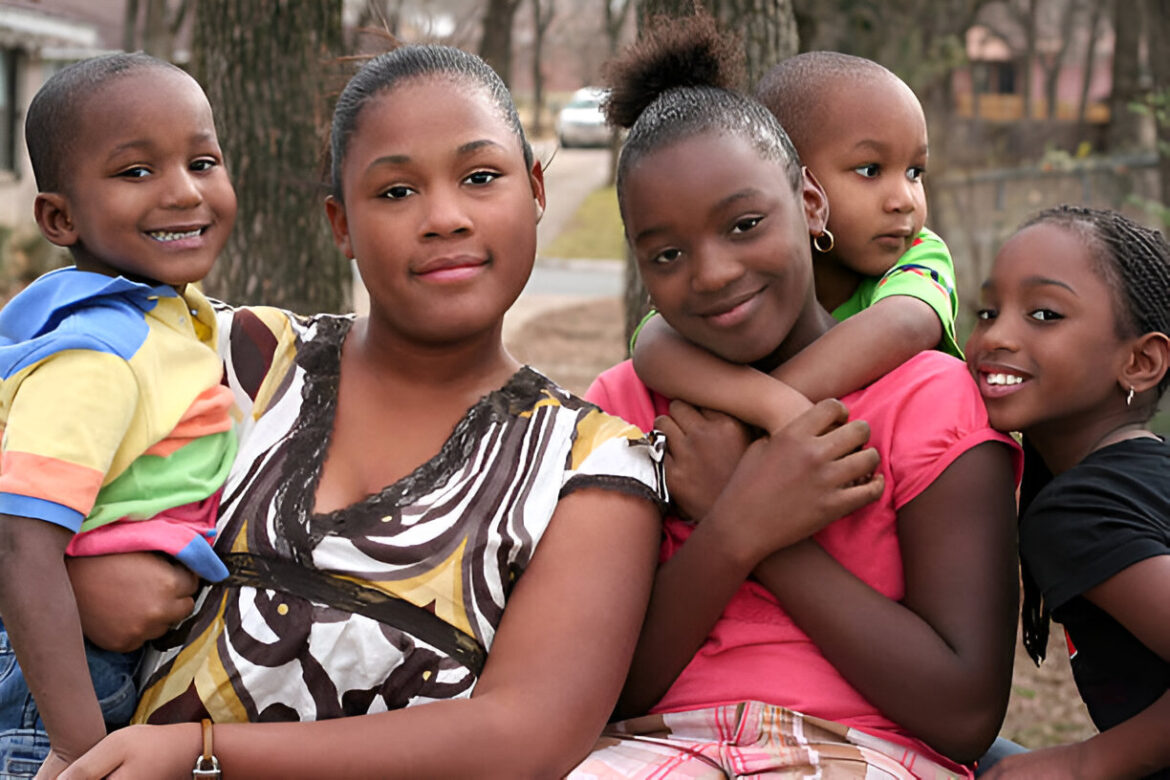“When I held her for the first time, I realized I was holding two things: my baby… and my future.”
At just 16, Mia had traded high school hallways for midnight feedings. Instead of scrolling through prom dress ideas on her phone, she was Googling “how to stop a baby’s colic.”
Teenage pregnancy—often whispered about but rarely understood—brings life-altering challenges, sacrifices, and moments of unexpected grace. It’s a journey not only for the young parents but also for the child growing up in the arms of a teenager. The story is as heavy as it is hopeful.
But what happens after that first cry, when the hospital doors swing open, and a young parent steps into a world that doesn’t feel ready for them? What does parenting look like when you’re raising a child while still becoming an adult yourself?
1. The Reality of Teenage Pregnancy: Beyond the Statistics
Let’s clear the air: teenage pregnancy isn’t just a “bad choice” or a dramatic headline—it’s a complex reality shaped by personal circumstances, cultural influences, and life’s unpredictable twists.
The Facts:
- Globally, about 12 million girls aged 15–19 give birth each year.
- 50% of teenage mothers drop out of school due to the demands of parenting.
- Children of teen parents often face higher risks of poverty, lower academic performance, and emotional challenges.
But these numbers don’t tell the full story. Behind them are real people: young parents navigating sleepless nights, judgmental stares, and dreams they’re desperate not to give up.
2. The Young Parent’s Experience: Balancing Baby and Self
For many young mothers and fathers, parenting feels like being on two journeys at once:
- Raising a child they deeply love.
- Trying to raise themselves into adults at the same time.
The Emotional Rollercoaster:
- Love and Guilt: “Am I good enough for my baby?” is a constant question.
- Isolation: Friends move on, school halls feel empty, and social media becomes a painful reminder of what they’re missing.
- Resilience: Young parents may be dismissed by society, but many push harder to prove themselves—for their child and for their own future.
A Young Mother’s Voice:
“Everyone told me my life was over, but holding my son gave me a new one. I had to grow up overnight, but he’s my reason to keep going.”
3. The Silent Weight: How Society Views Teenage Parents
Teenage parents face more than sleepless nights—they face judgment.
- Stereotypes and Shame: Many assume young mothers and fathers are “irresponsible,” incapable, or destined to fail.
- Systemic Barriers: Education systems, workplaces, and healthcare often lack flexibility to support teen parents.
- Family Dynamics: While some families step up with open arms, others react with shame, anger, or silence—leaving young parents feeling alone.
And yet, amidst all this, many young parents defy the odds. They go back to school. They work multiple jobs. They build homes filled with love and hope.
4. The Child’s Perspective: Growing Up with a Young Parent
From the child’s eyes, life with a young parent can feel like a mix of warmth and wondering:
- The Bond: Children of teenage parents often share a close, unique bond. They grow up together, learning life side by side.
- The Questions: As they grow older, they may ask: “Why did Mom have me so young?” or “Did I change her life in a bad way?”
- The Strength: Kids of young parents often inherit a deep sense of resilience, watching their parents work tirelessly to build something out of very little.
The Truth:
A young parent’s love can be just as strong, just as transformative, and just as capable as anyone else’s—what matters is the environment of care, support, and opportunity around them.
5. Building Support Systems: Giving Young Families a Chance
Teenage parents don’t need judgment—they need support. When communities, families, and systems come together, young families thrive.
How to Support Teenage Parents:
- Educational Flexibility: Schools can provide childcare options, flexible classes, and counseling to help young parents continue their education.
- Family Support: Parents of teenage parents play a critical role. Offering help without shame can transform a young parent’s confidence.
- Accessible Healthcare: Prenatal care, mental health counseling, and parenting education ensure young parents and their babies stay healthy.
- Community Programs: Mentorship, financial literacy programs, and parenting classes offer guidance and a sense of belonging.
6. The Power of Resilience: Stories of Hope
While teenage parenthood is undeniably challenging, it also gives rise to stories of remarkable strength and transformation.
- The young mother who finishes her degree, baby on her hip.
- The teen father who works nights so he can be present for daytime feedings.
- The child who grows up witnessing firsthand what sacrifice and perseverance look like.
One Young Parent’s Words:
“People said I’d fail, but my baby gave me purpose. I’m not perfect, but I’m trying—and that’s enough.”
7. Conclusion: Love Makes the Difference
Parenting as a teenager isn’t a path anyone dreams of, but it’s not a path without hope. It’s a journey of love that requires grit, grace, and the courage to rewrite the narrative society places upon it.
Young parents don’t need to be “fixed.” They need opportunities to grow, to heal, and to raise their children with the same dreams they once held for themselves.
To the young parents: Your story is valid. Your love is enough. Your resilience is extraordinary.
To the child: You were born into hands that are learning, but hands that love you more fiercely than you’ll ever know.
To society: Support them. Empower them. Watch them rise.


